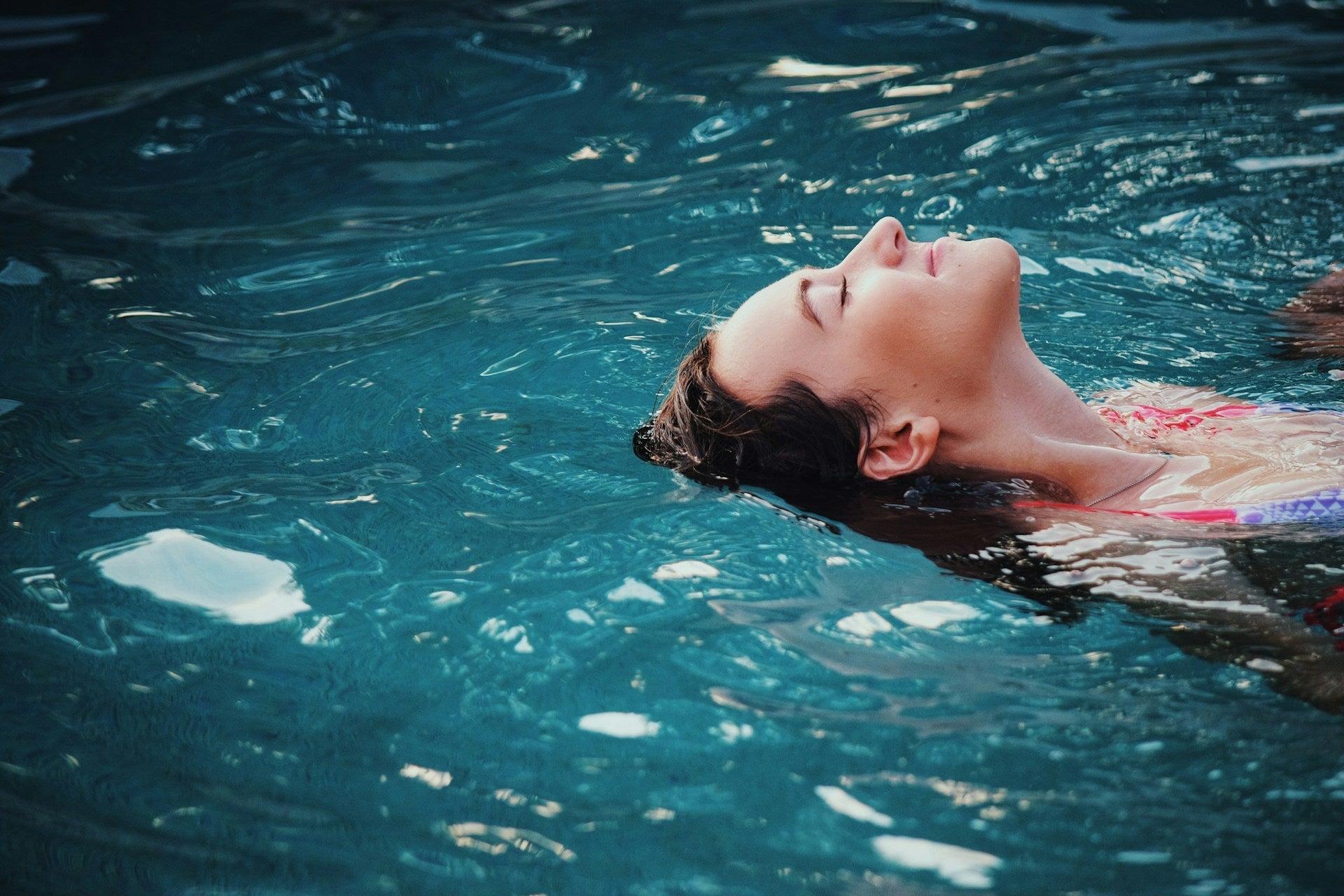Keeping your hair healthy can be a real challenge for athletes who enjoy water sports. Constant exposure to pool water, the sun, and chlorine damage tests the resilience of your strands, leading to dryness, breakage, and loss of shine.
However, with the right care, you can protect your treated hair without compromising your performance.
That’s why we share some effective strategies to keep your hair strong and healthy while you give your all in every training session and competition. Your discipline deserves the best—and so does your hair!
Why water sports can damage your hair?
Practicing water sports like swimming, surfing, paddleboarding, and snorkeling means constant contact with water, which can seriously impact your hair’s health.
Pool water, particularly with high chlorine levels, can be harsh on your scalp, stripping away its natural oils. This results in hair that feels dry, brittle, and lifeless. For individuals with dyed or light-colored hair, chlorine damage can also cause discoloration, leaving it dull or even with a greenish tint.
On the other hand, saltwater from the ocean dehydrates your hair due to its high salt concentration, leading to split ends and a rough texture.
To make things worse, continuous exposure to the sun while enjoying sports like kayaking, windsurfing, or kite surfing amplifies the damage, leaving your hair even drier and more fragile. Without proper care, these factors can become a real challenge to keeping your hair strong and healthy.

How does chlorine damage hair?
Chlorine in pool water is one of the main culprits behind damaged hair for water sports enthusiasts. This chemical, designed to kill bacteria and keep the water clean, directly affects the hair's structure.
Chlorine strips away the natural oils your hair needs to stay hydrated and elastic, leaving your hair dry, brittle, and more prone to breakage.
But chlorine damage doesn’t stop at texture—it can also impact your hair’s appearance. For dyed or lightened hair, especially blondes, chlorine can react with minerals in the water, creating a greenish tint that’s hard to miss. This is a common issue for swimming or water polo athletes who don’t take proper precautions.
Wondering how to protect hair from chlorine? The key is adopting simple preventative steps: rinse your hair with fresh water before jumping into the pool, wear protective swim caps, and apply products designed to create a barrier against chlorine.
These habits help keep your hair healthy and protect it from the long-term effects of repeated chlorine exposure.

How does saltwater damage hair?
When you’re into water sports like surfing, snorkeling, paddleboarding, or kayaking in saltwater, frequent exposure to salt can dry out your hair, leaving it rough and frizzy.
The salt strips your hair of its natural moisture and disrupts the cuticle, leaving it vulnerable to extreme dryness, making it look dull and hard to manage.
But the damage doesn’t stop there. Over time, constant exposure to saltwater can weaken the hair shaft, making it more prone to split ends and breakage. This cumulative damage affects both the appearance and overall strength of your strands.
If you spend a lot of time in the ocean, using protective oils or specialized sprays can make a big difference, helping you keep your hair hydrated and resilient against the harsh effects of salt.

Tips for a hair care routine after water sports
Taking care of your hair after practicing water sports is essential to counteract the harmful effects of saltwater, chlorine, and sun exposure. These tips will help you keep your hair strong, hydrated, and full of life, even after long hours in the water:
1.- Rinse your hair immediately after swimming
The first step to protecting your hair is to rinse your hair immediately after getting out of the water to remove salt, chlorine, and other chemicals that cling to your strands. This simple habit can prevent your hair from becoming unnecessarily dry and reduce the buildup of harmful substances that weaken the hair shaft. If freshwater isn’t readily available, use a water bottle to rinse as much as you can on the spot.
2.- Use a gentle shampoo and conditioner
After rinsing, wash your hair with a gentle shampoo and a hydrating conditioner designed to repair damage caused by saltwater and chlorine.
Specific products, like a shampoo for swim and sweat, are formulated to remove chlorine and salt residue while deeply moisturizing your strands. Make sure to gently massage your scalp and evenly distribute the conditioner through the ends to maximize the results.
3.- Protecting your hair before entering the water
The best defense is good prevention. Before engaging in water sports, apply a protective oil or a specialized spray to create a barrier against saltwater or chlorine.
Wearing a swim cap is also a great option, especially in pool water. These simple steps minimize damage and make post-swim hair care much easier.
4.- Use hydration and repair treatments
To keep your hair healthy, include hydrating and repair treatments in your weekly hair care routine. Hair masks and nourishing oils are perfect for restoring strength and shine after exposure to saltwater or chlorine.
Seek products with ingredients like argan oil, keratin, or aloe vera, known for repairing and strengthening hair fiber. Your hair will quickly regain vitality with just a few extra minutes of care.

You may be interested in
How to choose the right shampoo for a sweaty scalp?
Want healthier hair post-swim? The right chlorine shampoo can fix that
Best shampoo for swimmers and other athletes
Haircare products for water sports enthusiasts
If you’re into water sports, the right products are essential to protect and restore your hair. Use an essential shampoo to remove chlorine and salt in your hair care routine, paired with a hydrating conditioner to bring back softness and elasticity.
Find everything you need at Avanza Skin and give your skin and hair the care they deserve after every workout.
